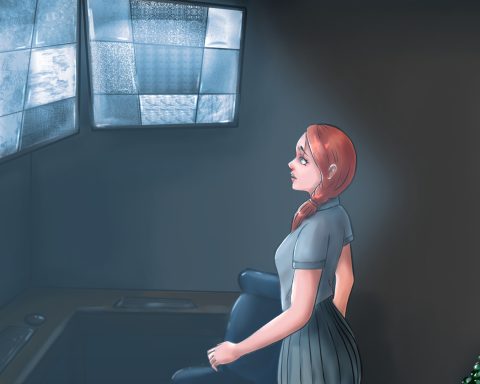.jpg) Interview by Matt S.
Interview by Matt S.
We recently had the opportunity to review Democracy 3, and we found it to be a rather educational, if occasionally dry look at politics, but a truly useful game for anyone who’s ever had an interest in some of the thinking that goes on behind political decisions.
It’s not the perfect game, but in the review we mentioned that it’s the kind of thing that we would like to see installed in students computers to help them better understand politics, and political debate.
Because the game is so strikingly unique in its vision, we sat down with the one-man band behind the game, Cliff Harris, to chat about how Democracy 3 came to be, gain his thoughts on politics in general, and some of the thinking behind the game.
Digitally Downloaded (DD): What inspired Democracy 3?
Cliff Harris (CH): It’s actually inspired by a book about creating an artificial chimpanzee, which talked about the structure of neural networks a lot. Bizarrely that made me envisage a system in code which would represent economics and politics and all of the complex inter-relationships between those things. it sounds bizarre, but that just kind of came to me.
DD: How difficult was it to abstract the entirety of politics down into a series of mechanics to represent a game?
CH: It’s extremely tricky because everything in the real world has connections to lots of ‘new’ things outside the simulation and the minute you include them, you have to then include the things that keep that variable into balance. So for example, if I was to include house prices in the game (an important economic issue in politics, for sure), you need to also model mortgage interest rate and also housing availability and negative equity levels, which also means you should be modelling workforce-mobility too. It’s a case of every item you want to add requires three or four more items, and then the simulation can easily get too big to be fun.
DD: There’s a lot of data running through the game. Was it difficult to get all the spreadsheets in the background accurate? How did you work around this?
CH: A huge amount of play-testing is really the only way to do it. It helps that I was modelling a system that already exists in the real world, and is obviously very vaguely in balance, so my initial guesses at relationships are fairly educated ones. There are definitely anomalies because often the same relationship is being used in very different societies, although thankfully for Democracy 3 I added a system of overrides which meant I could change especially problematic equations at play in each specific country represented in the game, which made life a lot easier.
DD: Do you feel that you’ve done a good job in balancing how both right and left wing politics function in Government? Why/ why not?
CH: I think so, although it may be slightly too hard to achieve a capitalist society right now. I personally can do it, but I find some people complain about that. The problem with feedback is the online PC gaming demographic is often younger and more left wing than the average citizen, so the feedback you get tends to skew from that side of the political spectrum. I think I got it about right, because I get grief from both socialists and capitalists telling me the game is biased the other way!
DD: What would you like to see happen in a future edition of the game?
CH: I think I’d like to model economics in more depth, especially industry. Right now the game focuses on GDP, but is that all from services? From the finance sector? From mining? Obviously that’s a very different situation in modern countries, which different sectors being more or less trade dependent, or more consumer-spending or export driven. More accurately modelling that could definitely add a lot to the game. The same is true of energy dependence, that is an area that is not really modelled yet, although modders are always adding new stuff to the game, and I have made it trivially easy to mod, so in a roundabout way some of these things are already there.
DD: Are you happy with how this game has been received by consumers?
CH: Yes very happy, it’s my best selling game so far, and people seem to really like it. It was also nominated for a BAFTA which is quite a big deal in the UK so that was much appreciated.
DD: Have you considered porting this to other platforms? It would be ace on iPad…
CH: I am currently arranging for a porting expert to port the game to the ipad. It’s beyond my skillset to do that, as the game is developed on Windows with DirectX, but we already have OSX and Linux ports and it should be coming to iPad soon.
DD: Do you think your game has educational value? Why/ why not?
CH: Oh definitely. It’s like a little slice of politics that is free from spin, personalities, trivia and mud-slinging. Politics in Democracy 3 is like an academic world in which all political debate revolves around the actual issues and policies, rather than any PR or soundbites. It presents a huge range of political and economic issues and doesn’t tell the player which they should feel is right or wrong. It’s like an economics and politics textbook that’s come alive and suddenly become fun.
DD: Finally, what games are you playing at the moment?
CH: Sim City (I know people hate it, but I actually think it’s very good), Banished, Battlefield 4, Company of Heroes 2 and Papers, Please.
– Matt S.
Editor-in-Chief
Find me on Twitter: @digitallydownld








